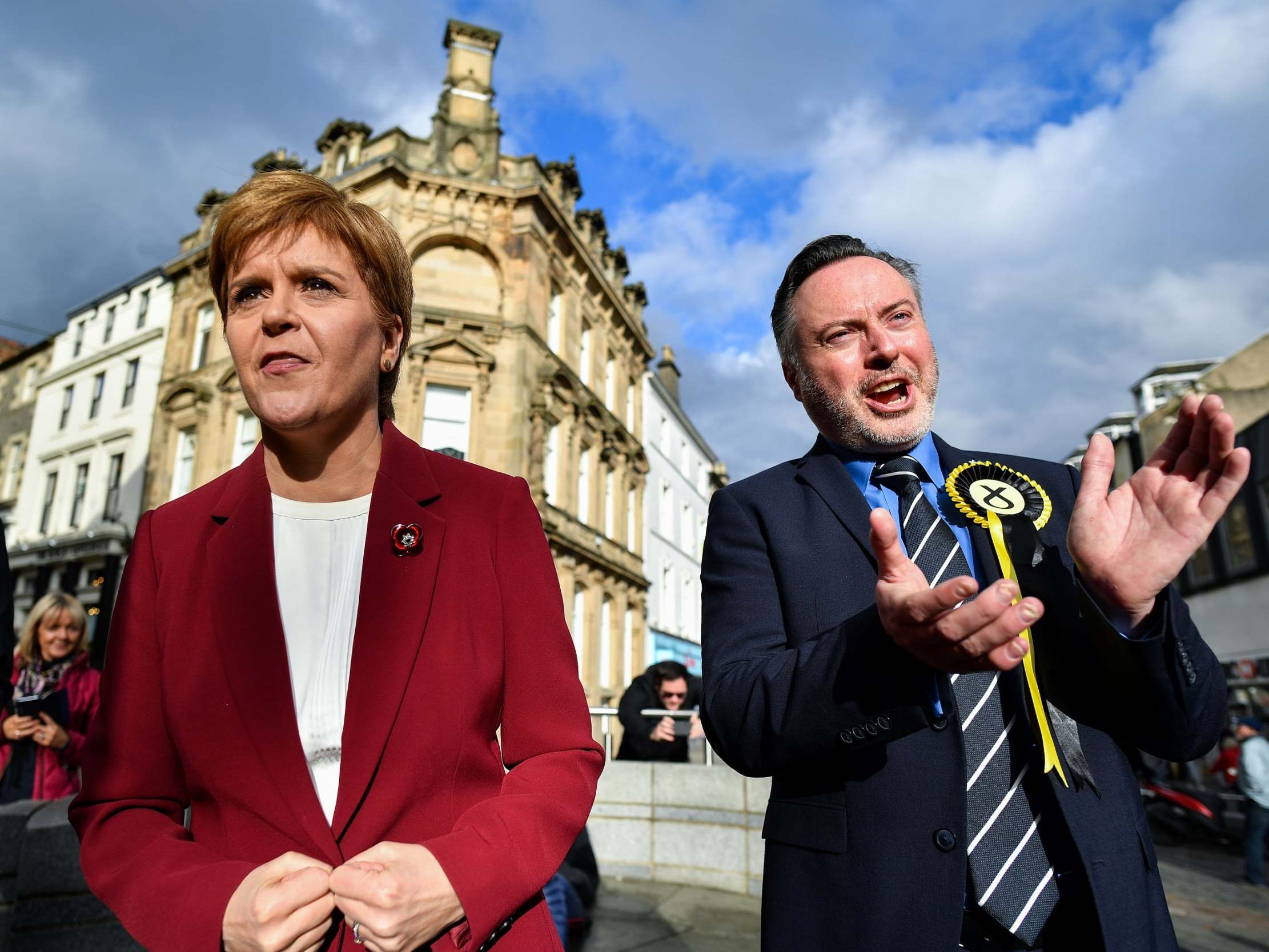How will Scotland vote in the general election?
Sean O’Grady examines whether the SNP will take out the Tories north of the border


There was a very good reason why the Scottish National Party pressed so hard for an early general election: it will win big. When it does, it will hope to have achieved three interrelated things. First, it would like to return, symbolically as much as anything, to the position that was obtained between 1997 and 2005 – no Tory MPs from north of the border turning up in Westminster. Second, it will present the image of a “Tory-free zone” as a mandate for a second independence referendum. Third, it will also present a near-clean sweep of the Westminster Scottish seats as a further mandate for returning Scotland to the European Union. “Keep a light on for Scotland” is SNP Westminster leader Ian Blackford’s message to the EU. Thus, the SNP seems to have concluded that, while Brexit cannot be stopped in the UK, it could be halted, or reversed, through Scottish independence.
Polling suggests support for independence has increased to the 50 per cent mark from the 45 achieved in the 2014 referendum.
Having returned to its polling strength of 2015, now running at about 58 per cent (versus 36.9 per cent in the 2017 election), the SNP has a good chance of regaining dominance in Scottish politics and realising most of its ambitions. Since Labour’s previous long-term hegemony disappeared in the 2015 general election, the SNP has taken over. Of the 59 Scottish Westminster constituencies, the SNP won 56 of them in 2015, falling to 35 at the 2017 election after Scottish Tory leader Ruth Davidson’s spirited campaigning. It is fair to say Theresa May’s skin was saved by her Tory colleagues north of the border.
Since then, things have gone wrong for both the main parties. Scotland, after all, voted by 62 per cent to 38 per cent to remain in the EU at the 2016 referendum, and the evolution of Brexit since 2017 has hardened feeling in Scotland that the nation is being torn out of the EU’s customs union and single market without its consent. Davidson’s retirement from the party leadership and the arrival of Boris Johnson are also net negatives for the party in Scotland.
The latest polling suggest the SNP will indeed win all of the Tories’ 13 seats, and be up to 48 seats in the 2019 parliament, the remainder being held by Labour and the Liberal Democrats.
Labour’s sometimes contradictory positions in supporting a second independence poll – “indyref2” – has helped crashed the party into a poor fourth place in the latest polls at just 7.2 per cent (versus 27.1 per cent in the 2017 election), compared with 14.9 per cent for the Conservatives (versus 28.6 per cent last time). The Lib Dems are now led by the Scot Jo Swinson, for East Dunbartonshire, which has probably helped the rise from 6.8 per cent to 12.5 per cent.
In 1997, by comparison, Labour commanded 45.6 per cent of the Scottish vote, and won 46 of the then 72 seats. (In those days the SNP was on 22.1 per cent of the votes, and had six seats.)
Traditionally it has been rare for Labour to have been able to form a government without a significant contingent from Scotland. Labour also benefited, historically, from an impressive array of Scottish political talent – Keir Hardie, Ramsay MacDonald, Robin Cook, Gordon Brown, John Reid and Donald Dewar, among others.
Even so, indyref2 is not in the gift of Nicola Sturgeon, the SNP first minster. Under the Scotland Act 1998, which set up the devolved administration, a mechanism in Section 30 needs to be activated to allow for a vote, and this can only be done with the permission of the UK parliament, in effect the British government. The SNP argues that “significant and material change” has occurred since the 2014 referendum, being Brexit, and the general election result will be used to add weight to their arguments. Ms Sturgeon has pledged to request indyref2 in “a matter of weeks”. A complicating factor may be the upcoming court case of former SNP leader Alex Salmond, but it doesn’t seem to be much of an issue in this general election. In any case, the brewing constitutional crisis in Scotland is unlikely to be averted by the election on 12 December.
Join our commenting forum
Join thought-provoking conversations, follow other Independent readers and see their replies
Comments